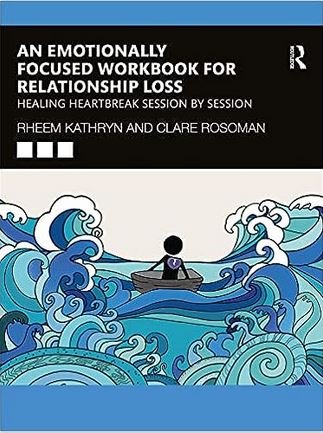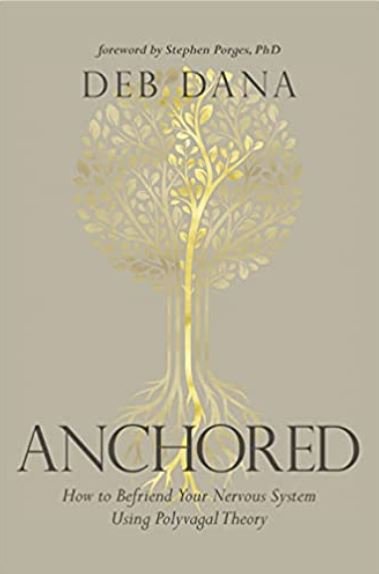
EFIT: Emotionally Focused
Therapy for Individuals
… and Resources for Individuals
The power of EFT is now being applied to individuals! As the ICEEFT website states:
EFIT is an attachment science-based approach to individual therapy that, like the other EFT interventions, EFCT for couples and EFFT for families, offers ways to reshape and make sense of inner experience and it offers relational interventions focused on reshaping patterns of engagement with significant others and the individual as a younger self. Emotion is given precedence in light of its powerful role in structuring inner experience, motivation, and key interactional patterns in relationships. Emotion links and organizes core experience and interaction.
Goals:
To offer corrective experiences that positively impact models of self and other and shape stable, lasting change.
To offer transformative moments where vulnerability is encountered with balance and difficult moments befriended.
To enable clients to move into the openness, responsiveness and full engagement that characterizes secure attachment with others.
To enable clients to shape a coherent sense of a competent self that can deal with existential life issues and become a fully alive human being.
A written overview of EFIT for therapists by Sue Johnson is available here.
A summary of Sue Johnson’s interview with Psychology Today about the EFIT Primer can be found here.
- From: https://iceeft.com/what-is-eft/ (2023)
I am a therapist specially trained in EFIT (Emotionally Focused Individual Therapy). If you are interested in doing EFIT with me, reach out! I’d love to have a conversation to see if what I offer is the fit you need.
And if you want more options for EFIT, check out the Find a Therapist tab on the Central PA EFT website and look for “Individual” under “EFT Focus” for the therapists listed there.
What is EFIT (Emotionally Focused Individual Therapy) and how does it work?
Dr. Clare Rosoman, EFT Trainer, describes Emotionally Focused Individual Therapy and how it helps people change.
RESOURCES for individuals
to support you on your journey . . .
(Click on images for links to Amazon.com)
Books:
Videos:
Dr. Sue Johnson and Dr. Ed Tronick talk about how attachment processes function from the cradle to the grave, how we need a responsive face from those we most depend on, and what happens in us when we don’t get that. (Click on the image to watch the video.)
Handouts:
Coping Skills for Calming - Sometimes we need extra tools for our “coping skills toolbox” so that we can ride out tough moments and get re-grounded. This handout is a combination of basic Mindfulness/DBT coping skills and using the best of EFT co-regulation to soothe the nervous system. Try them out and have fun with this! Let me know if you think of more you’d like to see on here! :>
Podcasts:
Befriending your Nervous System - for understanding your self … and your partner (including when one or both of you have experienced trauma (including lack of secure attachment as a child) that gets us dysregulated). In this Podcast, Deb Dana shares her insights into how Polyvagal Theory can help us!
From the Sounds True website: “Deb Dana is a clinician and consultant specializing in complex trauma…. Her work … is focused on using the lens of Polyvagal Theory to understand and resolve the impact of trauma, and create approaches that honor the role of the autonomic nervous system. With Sounds True, Deb has created a new audio program called Befriending Your Nervous System: Looking Through the Lens of Polyvagal Theory. In this podcast, Deb offers an introduction to the human nervous system, how Polyvagal Theory informs our understanding of the nervous system, how to manage the state known as “dysregulation,” and more.'“
Becoming an Active Operator of your Nervous System - more from Deb Dana
From this Podcast on the Sounds True Website: “Deb Dana, LCSW, is a clinician and consultant specializing in using the lens of Polyvagal Theory to understand and resolve the impact of trauma and create ways of working that honor the role of the autonomic nervous system. Her Sounds True publications include the audio program, Befriending Your Nervous System: Looking Through the Lens of Polyvagal Theory, and her new book Anchored: How to Befriend Your Nervous System Using Polyvagal Theory. In this podcast, Tami Simon converses with Deb Dana to offer listeners a practical understanding of Polyvagal Theory and how we can begin to decode the language of our body for better health and better relationships. Tami and Deb also discuss the dorsal, sympathetic, and ventral states of our nervous system; the gifts of becoming “anchored in ventral”; neuroception, your nervous system’s way of taking in information to assess your safety; curiosity and the capacity for self-reflection; the importance of self-care; co-regulation as a biological imperative; why self-regulation is especially critical for therapists and other helping professionals; music and nature as healing resources; the practice of self-compassion as a means of “getting our anchor back”; and more.”
Videos for Calming and Re-Regulating:
Dr. Deb Lang of Creating Choices, PC, shares, in easy to understand language, about how our nervous system gets in the mix of our distress and how to help us shift to a calmer state so we can make choices we feel good about. To jump straight to the calming techniques, go to minute 17.
Resources on Specific Topics:
LGBTQ folks and loved ones - Check out my webpage on these topics!
Eating Disorders and Eating Disorder-Impacted Relationships - again, see more on this site
Addictions - See this website for Resources and Prevention
If you want more resource suggestions specific to your growing edges, feel free to ask!










